When it comes to feeding your furry friend, you want to be sure you’re making the best choices for their health and well-being. While dogs often beg for a taste of whatever you’re eating, some foods can be harmful to them. It’s important to know which foods to avoid, so you can keep your dog safe and healthy. Here’s a list of 13 things you should never feed your dog, no matter how much they beg. You might be surprised by some of the items on this list!
1. Chocolate

We all love a good chocolate treat now and then, but it’s definitely not something to share with your dog. Chocolate contains theobromine, which dogs can’t metabolize efficiently. Even small amounts can cause serious health issues, like vomiting, diarrhea, and more severe symptoms such as seizures or heart problems. According to Dr. Jerry Klein, the Chief Veterinary Officer at the American Kennel Club, the darker the chocolate, the more dangerous it is for dogs. If your dog sneaks a piece, it’s vital to contact your vet immediately.
It’s also important to remember that dogs are often drawn to foods with strong scents and flavors, making chocolate particularly tempting. Keep your sweets out of reach, and make sure guests know not to share any with your pooch. Chocolate poisoning in dogs is all too common, especially during holidays when treats are plentiful. Be vigilant about where you store your chocolate and ensure it’s inaccessible to curious paws. It’s better to be safe than sorry with this potentially lethal treat.
2. Grapes And Raisins
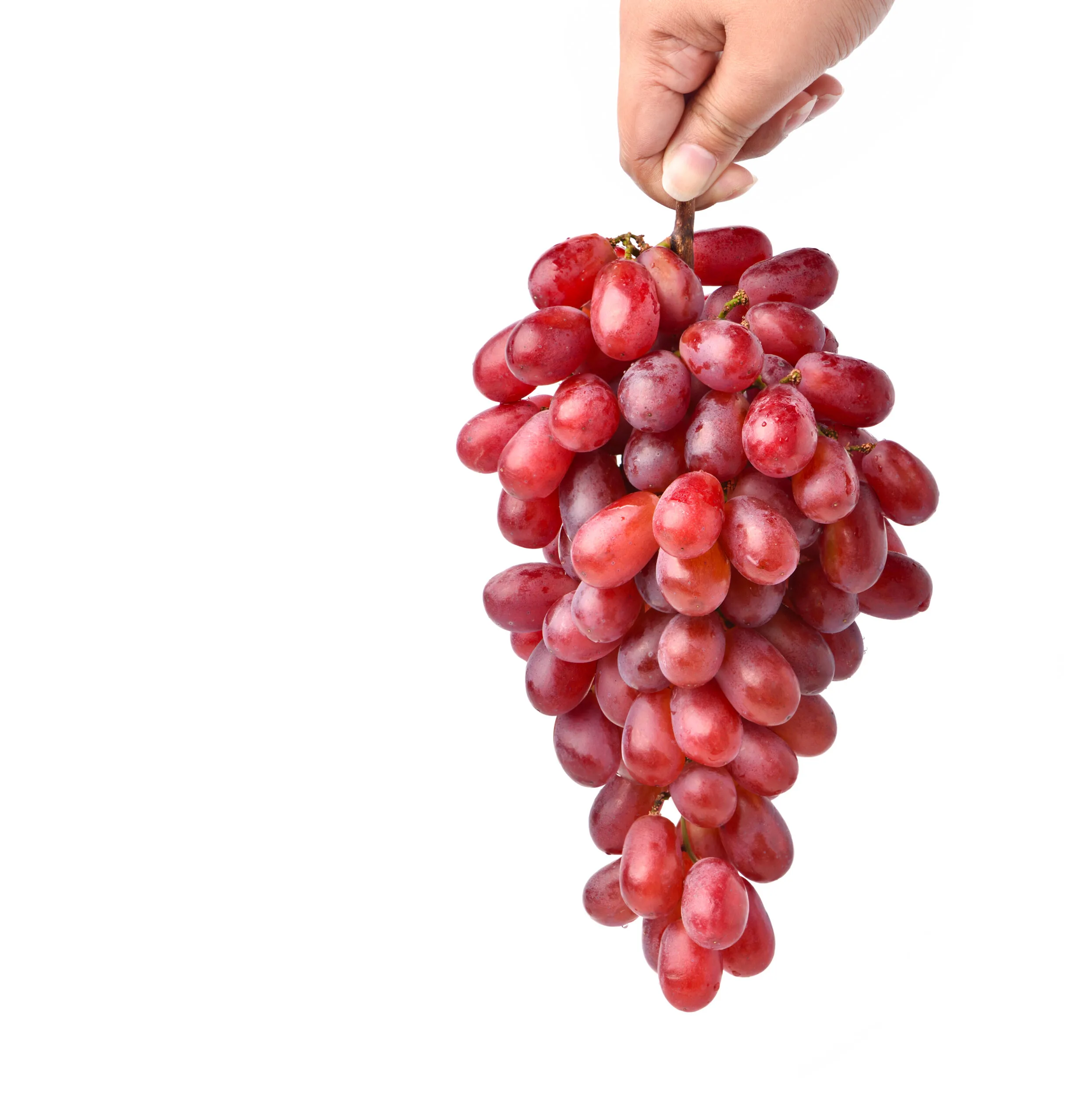
Grapes and raisins might seem like a healthy snack, but they can cause serious harm to your dog. These fruits have been linked to sudden kidney failure in dogs, which can be fatal if not treated immediately. It’s unclear what substance in grapes and raisins causes this reaction, but even a small amount can be dangerous. Symptoms of grape or raisin poisoning include vomiting, diarrhea, lethargy, and abdominal pain. If your dog has ingested any, it’s crucial to contact your vet as soon as possible.
To prevent accidental ingestion, be mindful of where you store grapes and raisins. They are often found in baked goods, cereals, and trail mixes, so be cautious when leaving these items where your dog can reach them. Consider substituting dog-safe fruits, like apples or bananas, when you want to share a snack. Always remember to remove any seeds or pits before offering fruits to your dog. Keeping grapes and raisins out of their diet entirely is the safest approach.
3. Onions And Garlic

Onions and garlic might add flavor to our meals, but they are harmful to dogs. They contain compounds that can damage a dog’s red blood cells, leading to a condition called hemolytic anemia. This can result in symptoms like weakness, elevated heart rate, and pale gums. A study published in the Journal of Veterinary Science highlights the toxic effects of allium species on dogs, emphasizing the importance of keeping them out of canine diets. Even powdered forms, like garlic powder or onion soup mix, can be toxic.
It’s not just raw onions and garlic you need to worry about; cooked or processed forms are equally dangerous. Many human foods, especially those seasoned with garlic or onion, might appear harmless but can cause significant health issues for your dog. Always check ingredient lists before offering any food to your pet. If you think your dog has consumed onions or garlic, contact your vet immediately. Prevention is key, so keep these items far away from your pooch’s curious nose.
4. Avocado
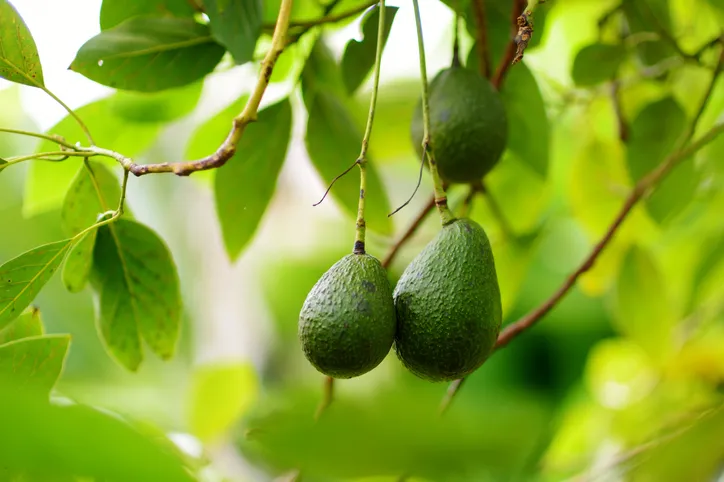
Avocado might be a staple of healthy human diets, but it doesn’t offer the same benefits for dogs. It contains a substance called persin, which can be toxic to dogs in large amounts. While the flesh of the avocado is less harmful, the pit, skin, and leaves hold higher levels of persin and pose a greater risk. Symptoms of avocado poisoning include vomiting, diarrhea, and difficulty breathing. If your dog shows any of these signs after eating avocado, it’s essential to seek veterinary care right away.
In addition to persin, the large pit is a choking hazard and can cause intestinal blockages if swallowed. Always be cautious about where you dispose of avocado remnants to prevent your dog from getting into them. Even though some dogs might not react immediately to small amounts of avocado, it’s best to err on the side of caution. There are plenty of other dog-friendly fruits and vegetables to choose from. Keeping avocados out of reach is a simple way to avoid unnecessary risks.
5. Alcohol

Alcohol and pets are a dangerous mix, and even small amounts can have severe effects on dogs. Unlike humans, dogs are much more sensitive to alcohol’s effects, which can quickly lead to alcohol poisoning. Symptoms include vomiting, disorientation, difficulty breathing, and, in severe cases, coma or death. Dr. Tina Wismer of the ASPCA Animal Poison Control Center warns that alcohol can even be found in unexpected places, like fermented fruits or certain cleaning products. It’s important to ensure your dog doesn’t have access to any form of alcohol, including beer, wine, or spirits.
Moreover, some foods contain alcohol as an ingredient, so always read labels and be cautious when offering your dog table scraps. Don’t leave alcoholic drinks unattended where your pet might sneak a sip, and be mindful of spills or leftovers at parties. Prevention is crucial, as dogs can be curious and persistent when they catch the scent of something new. If you suspect your dog has ingested alcohol, seek veterinary assistance immediately. Keeping alcohol out of their reach is an easy way to safeguard their health.
6. Caffeine

Caffeine is another substance that we might rely on to get through the day, but should never be shared with our furry friends. Found in coffee, tea, energy drinks, and even some medications, caffeine can be toxic to dogs. It affects the heart and nervous system, leading to symptoms such as restlessness, rapid breathing, heart palpitations, and muscle tremors. In severe cases, it can be fatal. If your dog has ingested caffeine, it’s important to call your vet immediately.
To keep your dog safe, store caffeine-containing products out of reach and clean up spills promptly. Be aware that caffeine can also be found in chocolate, making some treats doubly dangerous for dogs. While we may enjoy a morning coffee, dogs should stick to water as their beverage of choice. Consider offering them a toy or treat designed for dogs if they’re curious about your caffeinated drinks. If you’re ever in doubt about whether something contains caffeine, it’s best to err on the side of caution.
7. Macadamia Nuts
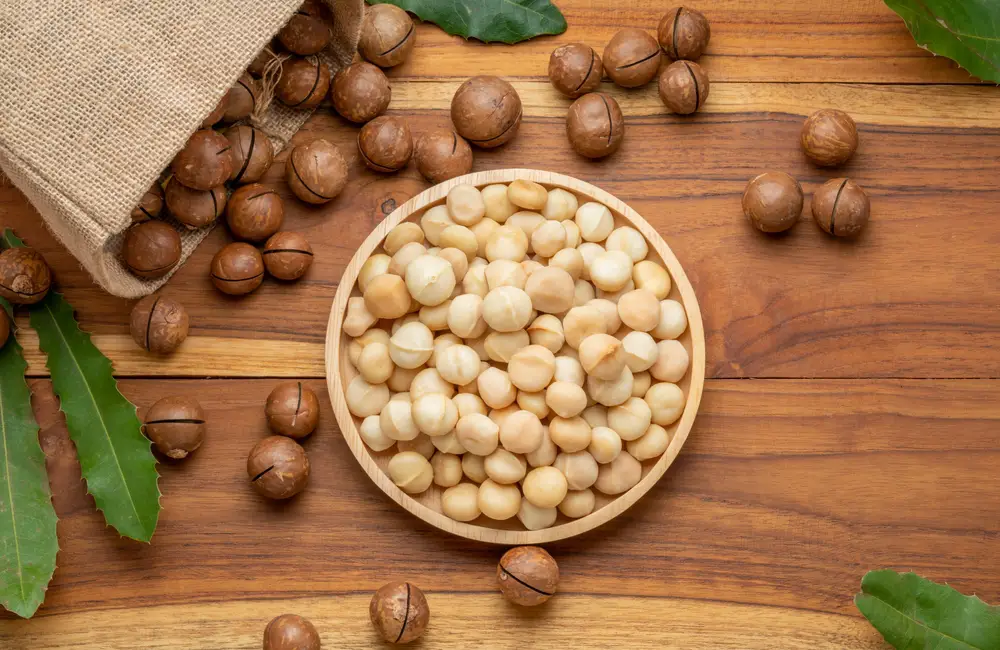
Macadamia nuts are another surprising item that can pose a threat to your dog’s health. Even small amounts can cause adverse reactions, such as weakness, vomiting, and tremors. According to veterinary research published by Dr. Rachel Barrack, macadamia nuts can lead to a temporary inability to walk, especially affecting the hind legs. While the exact cause of toxicity is unknown, the effects can be serious and distressing for both you and your dog. If you suspect your dog has eaten macadamia nuts, contact your vet immediately.
You might not think twice about leaving a bowl of nuts on the table, but it’s important to be vigilant. Macadamia nuts are often included in baked goods and snack mixes, so keep these items well out of your dog’s reach. Educate others in your household about the dangers of these nuts to ensure everyone is on the same page. There are plenty of other safe treats you can offer your dog that won’t pose a health risk. Being proactive and cautious can prevent accidental ingestion and keep your dog healthy.
8. Xylitol
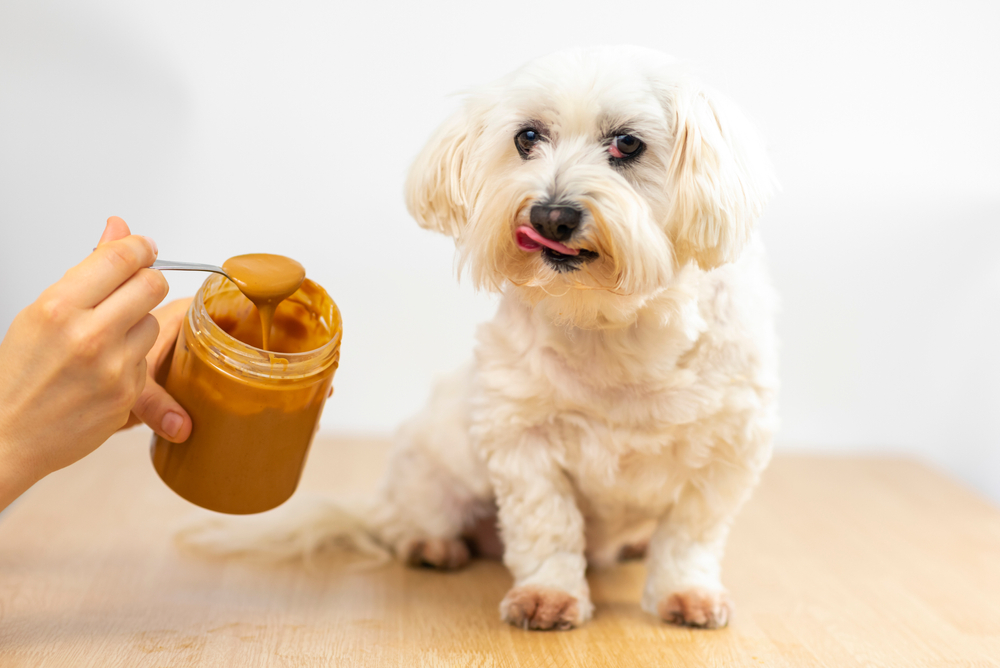
Xylitol is a sugar substitute found in many sugar-free or “diet” products, including gum, candy, and baked goods. While it’s safe for humans, it’s extremely toxic to dogs. Even small amounts can cause a rapid insulin release, leading to hypoglycemia (low blood sugar), seizures, or even liver failure. Symptoms can appear quickly, making it crucial to seek immediate veterinary care if your dog ingests xylitol. Always check labels on products and keep anything potentially containing xylitol out of reach of your pet.
It’s not just food products you need to worry about; xylitol can also be found in some brands of peanut butter and toothpaste. Be cautious when using these products around your dog, and consider alternatives that are dog-safe. Inform visitors and family members about the dangers of xylitol to ensure everyone is vigilant around your pet. Prevention is the best defense, so be thorough in checking ingredients. By staying informed, you can protect your dog from this hidden hazard.
9. Raw Meat And Fish
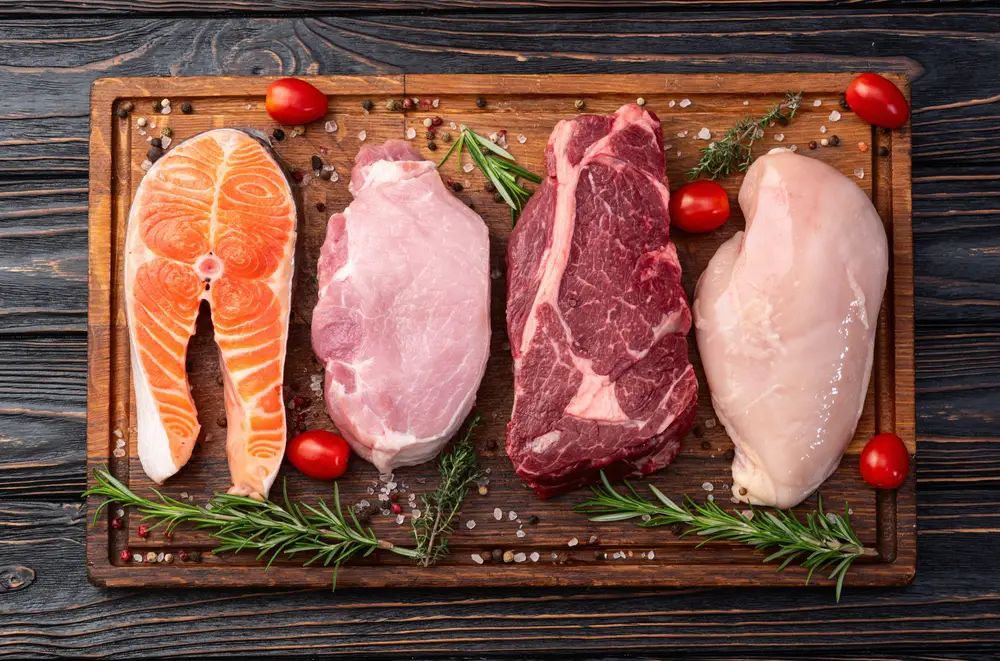
Feeding your dog raw meat or fish might seem natural, but it can pose health risks. Raw meat can contain bacteria like Salmonella or E. coli, which can make both your dog and your family sick. Fish, on the other hand, can contain parasites that can lead to serious health issues if not properly cooked. While some advocate for raw food diets, it’s essential to consult with your vet before making any changes to your dog’s diet. They can help you weigh the risks and benefits and decide what’s best for your pet.
If you decide to feed your dog raw food, be meticulous about sourcing high-quality, fresh ingredients. Always practice good hygiene to prevent cross-contamination, and monitor your dog for any signs of illness. Cooking meat and fish thoroughly can eliminate most harmful bacteria and parasites, making it a safer option for your dog. If you’re set on a raw diet, consider commercial options specifically formulated for dogs, which are often tested for pathogens. Your dog’s health should always come first.
10. Cooked Bones

Many dog owners think bones are a natural treat, but cooked bones can be dangerous. Cooking bones makes them brittle, increasing the risk of splintering, which can cause choking or damage to your dog’s digestive tract. Raw bones are generally safer, but it’s crucial to choose the right size and type for your dog. Always supervise your dog when they’re chewing on a bone to prevent any accidents. If you’re unsure, consult your vet for recommendations on safe chew options.
Cooked bones from common meats like chicken, turkey, or pork are especially hazardous. These bones can easily break into sharp pieces, potentially causing internal injuries. Opt for specially designed dog chews that are safe and satisfying alternatives to bones. Many products on the market offer the dental benefits of chewing without the risks associated with real bones. Prioritizing your dog’s safety is key, and avoiding cooked bones is a simple way to prevent accidents.
11. Dairy Products
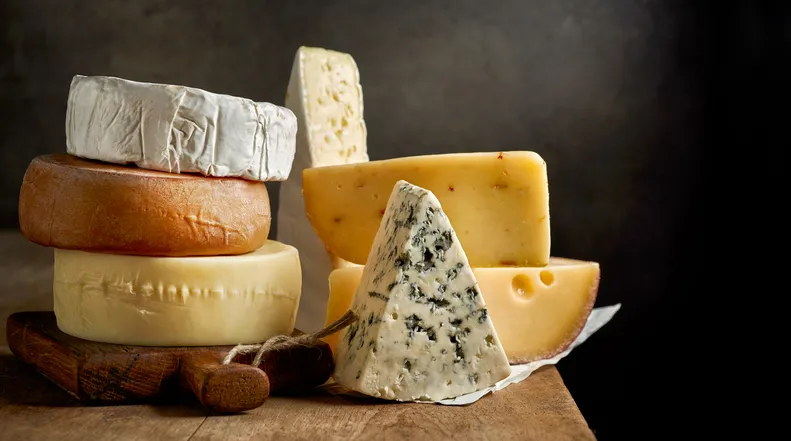
While many dogs love the taste of milk, cheese, or ice cream, not all dogs can tolerate dairy well. Dogs often lack the enzyme lactase, which is necessary to digest lactose found in dairy products. Consuming dairy can lead to digestive issues like diarrhea or upset stomach. If your dog shows signs of lactose intolerance, it’s best to steer clear of dairy altogether. There are plenty of lactose-free options available, so your dog doesn’t have to miss out entirely.
Even if your dog tolerates dairy, it’s important to offer it in moderation. High-fat dairy products can contribute to obesity and other health problems if given too frequently. Always consider healthier alternatives, such as specially formulated dog treats that provide similar flavors without the digestive upset. Dairy-free dog treats are widely available and can satisfy your dog’s craving for something creamy. Monitoring your dog’s reaction to dairy products can help you make informed decisions about their diet.
12. Corn On The Cob
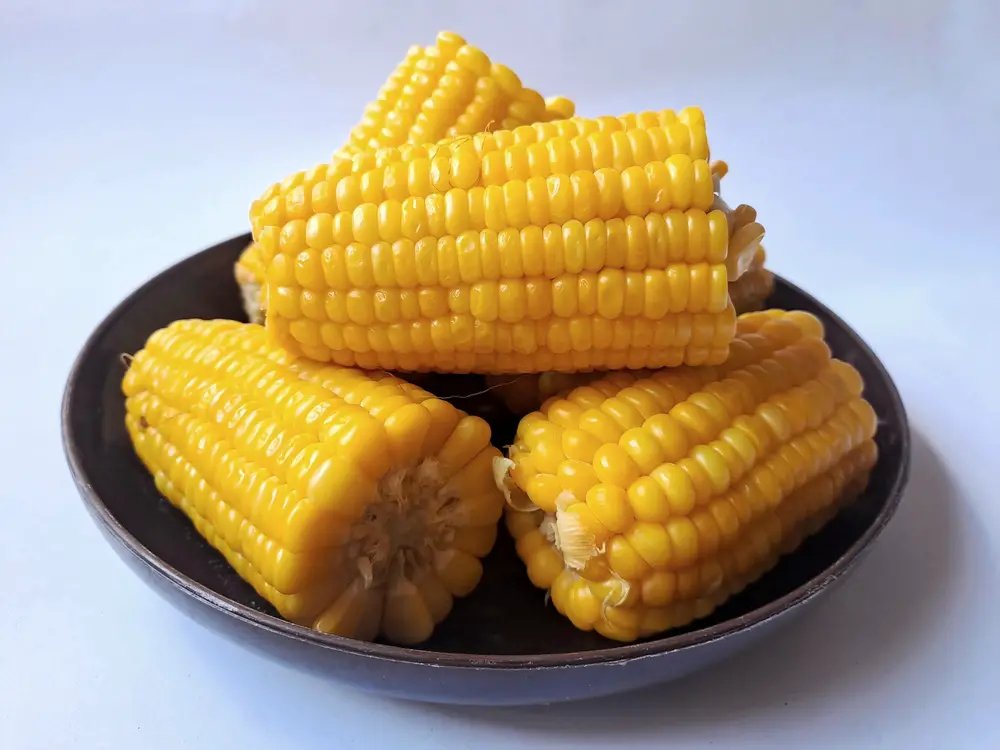
Corn itself isn’t harmful to dogs and can even be a part of their diet in small amounts. However, corn on the cob poses a significant choking hazard and can cause intestinal blockages. Dogs often chew the cob into chunks that are difficult to pass, leading to serious complications. Symptoms of a blockage include vomiting, decreased appetite, and difficulty defecating. If you suspect your dog has swallowed part of a corn cob, it’s crucial to seek veterinary care immediately.
To prevent accidents, always dispose of corn cobs in a way that your dog cannot access them. Even if you think your dog won’t be interested, some dogs find the residual taste tempting enough to investigate. Consider offering plain corn kernels instead if you’d like to share this treat with your dog. Always be cautious about foods that pose a choking risk and opt for safer alternatives. Keeping corn cobs out of reach is a straightforward way to protect your dog.
13. High-Salt Foods
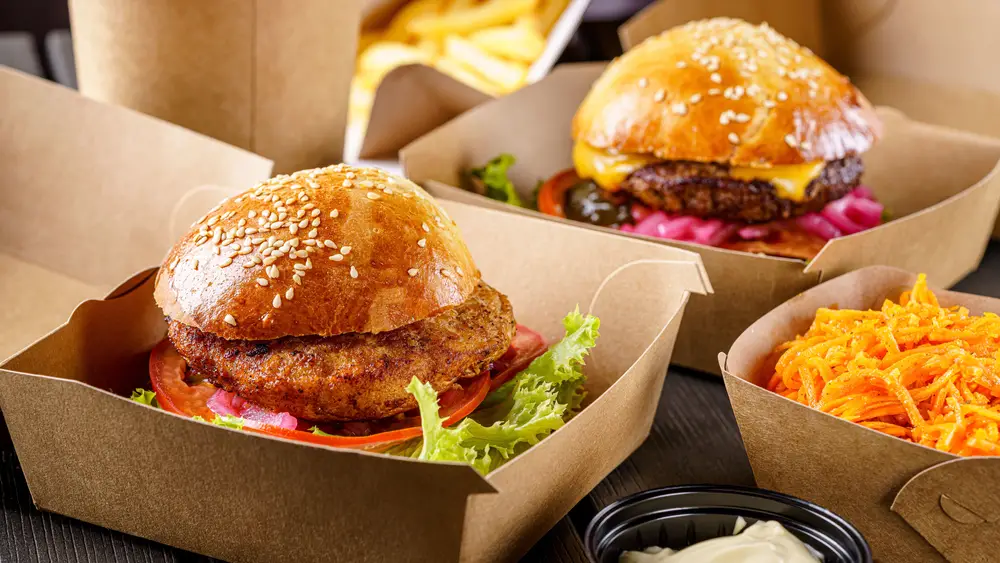
Salt is a common seasoning in many of our foods, but high-salt content can be dangerous for dogs. Consuming too much salt can lead to sodium ion poisoning, with symptoms like vomiting, diarrhea, tremors, and seizures. Dogs have a lower tolerance for salt than humans, so it’s crucial to monitor their intake closely. Always avoid sharing salty snacks like chips, pretzels, or processed meats with your dog. If your dog shows signs of salt poisoning, contact your vet immediately.
To promote a healthy diet, opt for low-sodium dog foods and treats. Be mindful of the salt content in any homemade meals or leftovers you offer your pet. Providing plenty of fresh water is also important, as it helps to regulate their system and prevent dehydration. Educate everyone in your household about the risks of high-salt foods to ensure your dog isn’t inadvertently exposed. A little caution goes a long way in keeping your dog healthy and happy.
